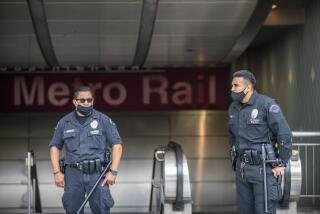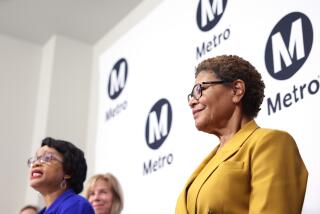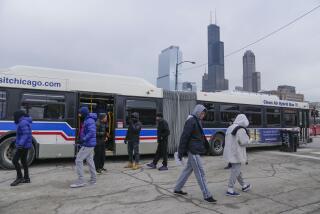Mediator Steps In on Bus Impasse
- Share via
The federal mediator in a long-standing dispute between a bus riders advocacy group and the Metropolitan Transportation Authority issued an 80-page ruling this week, providing a road map for the two sides as they come up with a plan to ease bus overcrowding.
The ruling by Washington lawyer Donald T. Bliss, came after the MTA and the Bus Riders Union reached an impasse in discussions of a 1996 federal agreement.
That agreement, called a consent decree, was issued after the Bus Riders Union sued the MTA, contending that it violated civil rights by providing poor bus service. The two sides, whose representatives meet at least once a month to discuss solutions to overcrowding, rely on Bliss if they reach an impasse.
In the late 1990s, Bliss intervened by ordering the MTA to add buses. More recently, representatives have been unable to find common ground since the MTA lost its bid to have the Supreme Court review the consent decree in March.
Bliss wants each side to consider factors outside the MTA’s control, such as car accidents, as they examine overcrowding.
But Bliss also notes that part of the problem is that the MTA does not have enough buses and that some overcrowding comes from poor management, exemplified by such things as buses that never make it into service because of repair problems.
Under Bliss’ plan, much of the burden will probably fall on the MTA to devise a plan within the next few months that is acceptable to the union.
Among the possibilities: The agency could add scores of additional buses to its fleet of about 2,200, or could offer to add higher-capacity buses.
If the two sides can’t come to an agreement, the matter will be kicked back to Bliss, who will then issue orders to the MTA.
More to Read
Sign up for Essential California
The most important California stories and recommendations in your inbox every morning.
You may occasionally receive promotional content from the Los Angeles Times.














